In gesprek met Anaïs Banzira over deze blinde vlek en de impact ervan.
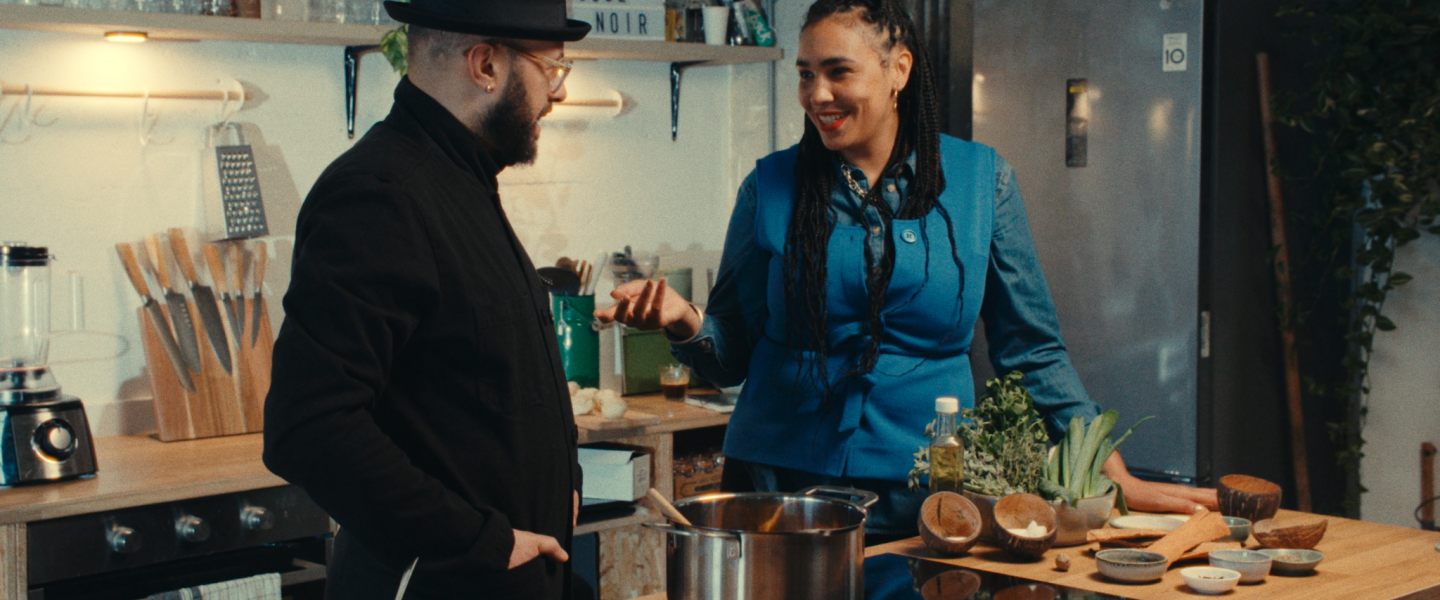
Beeld: BORI
Lelani Lewis over curry, de diaspora en het belang van toko’s: ‘het is een plek van herkenning en verbinding’
Datum
Ter gelegenheid van aflevering 3 van de serie BORI spraken we met kok en creatief producent Lelani Lewis. Geboren en getogen in Londen, en inmiddels al tien jaar woonachtig in Amsterdam, staat Lelani bekend om haar werk rond de culinaire erfenis van de diaspora. Met haar platform Code Noir creëert ze ruimte voor chefs van kleur om hun verhalen te vertellen via eten en zet ze de koloniale geschiedenis van de keuken op scherp.
Datum
Tags
Schrijvers
In dit interview duiken we samen met haar in de betekenis van curry, de rol van toko’s als culturele ankers, en hoe smaken herinneringen dragen. In tegenstelling tot de voorgaande BORI-interviews vond dit gesprek plaats in het Engels, zodat Lelani zich in haar moedertaal zo comfortabel en genuanceerd mogelijk kon uitdrukken.
You grew up in the UK and have been living in Amsterdam for several years now. How have both places shaped your cooking style?
“I’ve been living in Amsterdam for ten years now, and it’s been an eye-opening journey, especially when I reflect on how both London and Amsterdam have influenced my approach to food. Growing up in London, I was surrounded by one of the world’s most diverse culinary scenes. A true melting pot of cultures where the standard and variety of food is incredibly high. It gave me early access to a wide spectrum of global cuisines, ingredients, and techniques, all within arm’s reach.
Amsterdam, on the other hand, has offered a different kind of richness. Exploring the city's many toko’s has exposed me to ingredients from across the Dutch diaspora: places that have historical and colonial ties to the Netherlands. Seeing those ingredients on the shelves and understanding their stories has been deeply inspiring and has pushed me to broaden my culinary lens in unexpected ways.
More than anything, I see myself as a lifelong student. Living in a different country has only deepened my curiosity: I’m always asking questions, learning from people, and trying to understand the roots and influences behind the food they make. That ongoing exchange is essential to how I cook.”
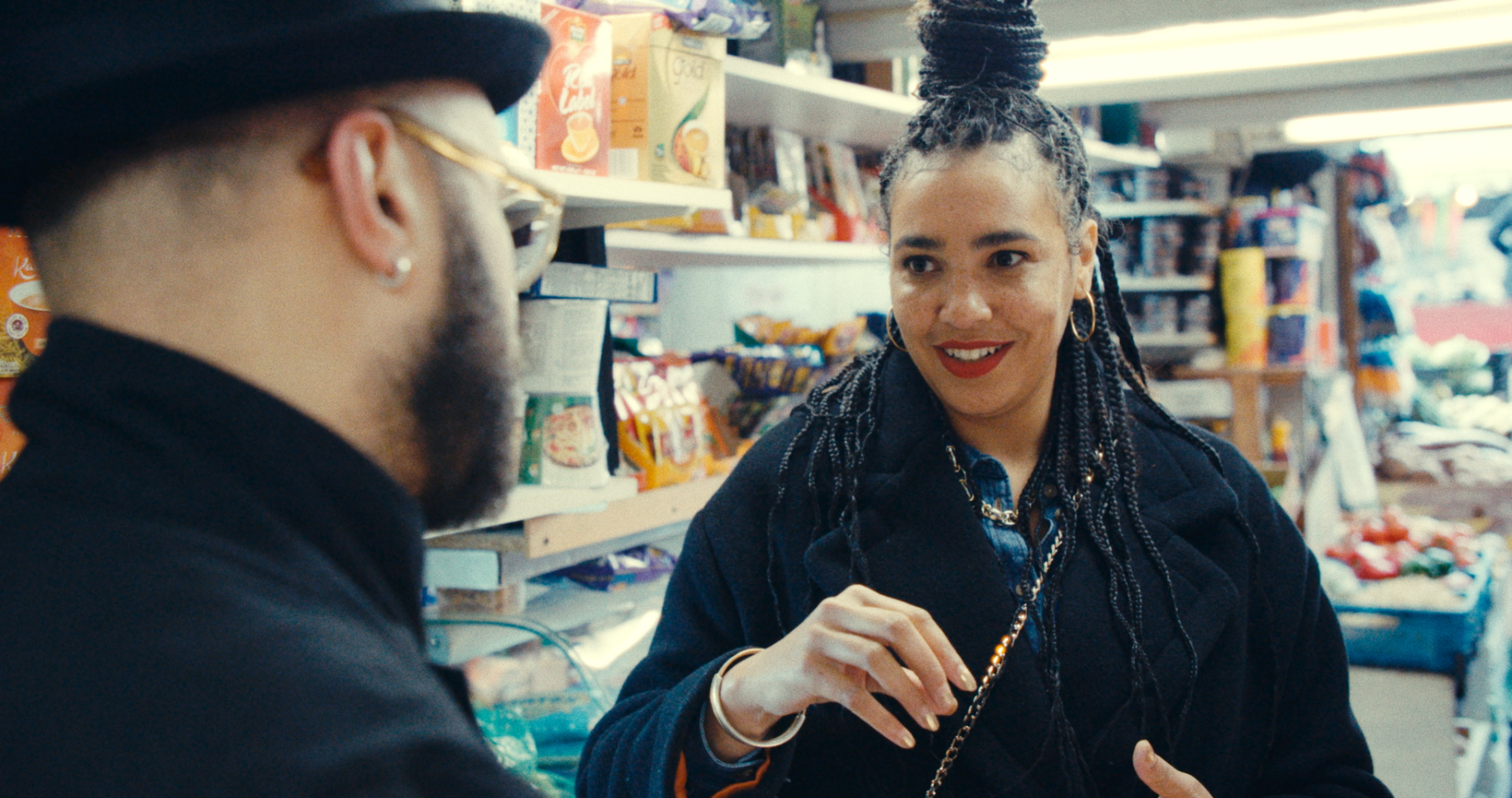
What are your go-to ingredients from the toko, the ones you always make sure to have in your kitchen?
“I always like to have my Caribbean staples on hand. Things like spring onions, thyme, Scotch bonnet peppers, and plantain are must-haves for me. They’re the backbone of a lot of the dishes I grew up eating and cooking. I also really love having a good-quality sesame oil. It can instantly elevate any dressing or dish and adds such a delicious depth of flavor.
But beyond specific ingredients, I use toko’s as a source of inspiration. When you go into a regular supermarket like Albert Heijn, everything feels so predictable. You know exactly what you’re going to see and it doesn’t really spark creativity. A toko, on the other hand, is full of surprises. I often go in and see ingredients I’ve never used before. It makes me stop and think, how could I cook with that? It keeps things fresh and exciting.
When I first moved to the Netherlands, toko’s were a kind of anchor for me. They gave me a way to stay connected to home through the food I love. For many people from the diaspora, these stores are more than just shops. It’s a cultural legacy. They are spaces where we find familiarity, where we can access the ingredients that tie us to our cultures and memories. Walking into a toko always feels like more than shopping. It’s a moment of connection and belonging.”
"I was inspired by my father even if he didn’t want me to follow the same path"
In your BORI episode you opened up about the relationship between you and your father, can you tell me a bit more about the role he played in your culinary journey?
“My dad was actually against me becoming a chef at first. When he was younger, he worked in kitchens and experienced how toxic they could be. In the 1980s, kitchens were known for being really tough places with a lot of bullying and a toxic, masculine culture. He didn’t want me to face that kind of environment. But despite that, I always felt a strong connection to food. Family gatherings always revolved around cooking and sharing meals. Even at school, I studied food technology, and my teacher noticed I had a natural talent for it. Although my dad tried to discourage me, he was also the main cook at home. So in a way, I was inspired by him even if he didn’t want me to follow the same path. His influence was a mix of caution and inspiration, and ultimately it shaped my journey in cooking.”

What does the idea of ‘home’ taste like for you? Are there flavors or ingredients that instantly bring you back to your childhood?
“Honestly, that’s exactly why I chose to make curry. It’s such a meaningful dish to me. Curry exists in so many forms around the world, but for me, it really represents home. My mum is Irish, but you’d think she was Indian because she was always making curry. Whenever people came over, she would say, “I’m going to make a lamb curry,” or “Let’s do a chicken curry.” It was just her go-to.
From my dad’s side, I have Caribbean roots. In the episode, I cook my dad’s chicken curry, which uses a Madras-style curry powder. That dish especially is so comforting to me. It’s not just about the flavor, it’s about the feeling. The combination of spices and the warmth of the chili creates comfort on a plate. You walk into the house and smell those spices filling every room, and it instantly makes you feel safe and cared for.
Curry has that power. It’s the kind of dish where the smell alone can bring back memories and create a sense of home. For me, it’s about more than food. It’s about connection, comfort, and the warmth that comes from shared tradition. That’s what home tastes like to me.”
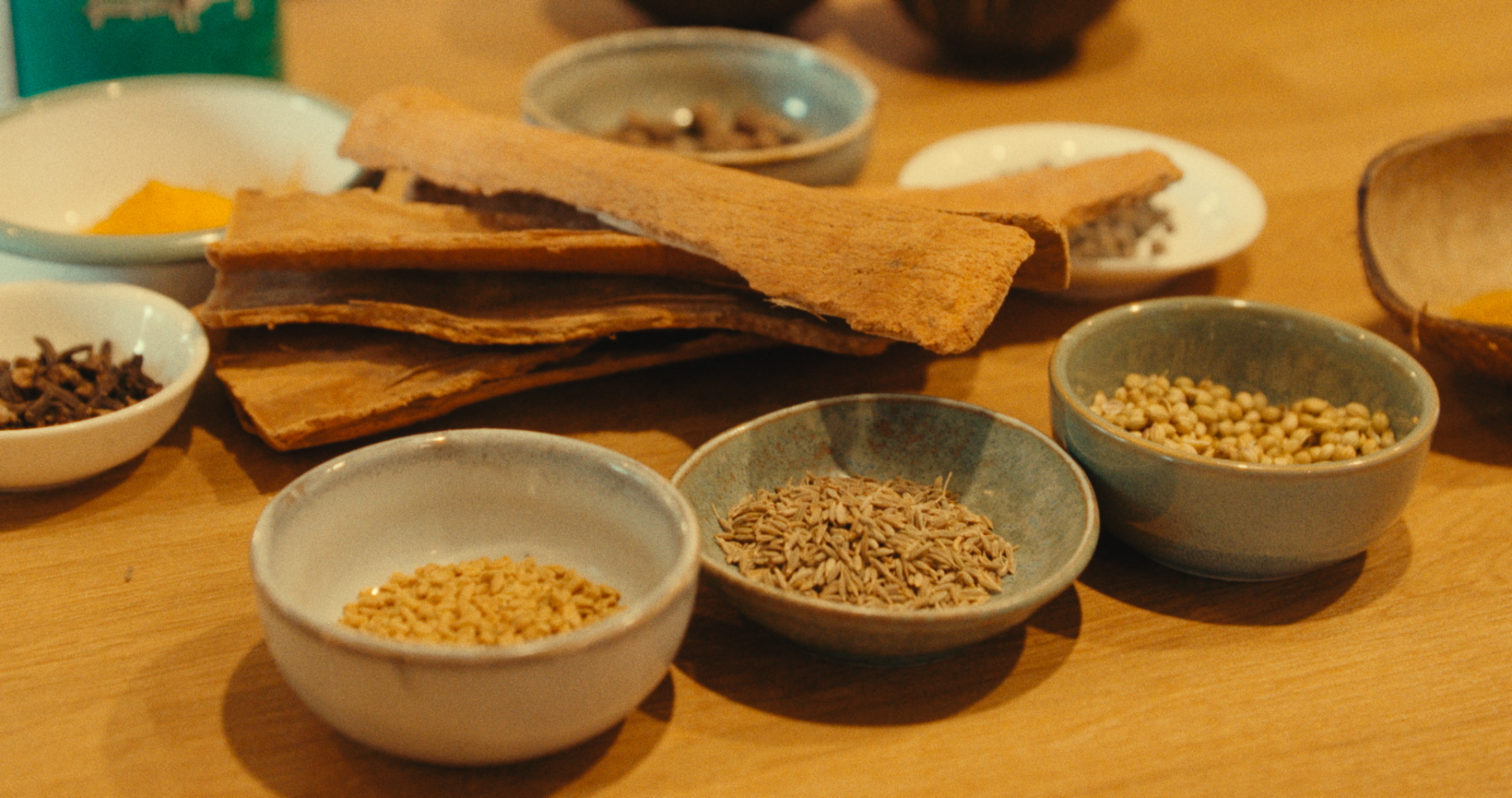
What would you say is the biggest misunderstanding about curry?
“One of the biggest misconceptions about curry is that it has to be spicy, as in hot, with chili. But that’s not necessarily true. At its core, curry is about the blend of aromatic spices, not heat. It’s a term with Indian origins, but it’s taken on so many forms around the world. You’ll find Japanese katsu curry, Caribbean curries, even the classic British ‘curry sauce’ poured over chips. Each version reflects a different cultural interpretation. So while people often associate curry with India and a certain level of spiciness, it’s actually incredibly diverse and doesn’t need to be spicy at all.”
But yeah, I would say the biggest misconception about curry is that it should be spicy. And it doesn't have to be. It's a mixture of spices, of aromatic spices, but it does not have to be spicy.”
"In many cultures, recipes and techniques are shared orally rather than written"
In the episode, there's a segment about curry and its colonial history. Can you expand on the origins of curry and where it comes from?
“Curry is actually a Tamil word that simply means "sauce." It wasn’t originally meant to describe a specific dish or blend of spices. The British misunderstood and misused the term during colonial rule, turning it into a generic reference to a wide range of spiced dishes. They also created "curry powder" as a way to bottle and simplify these complex, regional recipes for export and convenience. This version of curry became the standard in British kitchens and was then spread globally, creating a very narrow and inaccurate representation of what curry really is.
What’s fascinating is that there are countless iterations of curry across the world, each with its own history, ingredients, and cultural context. The way the British categorized it flattened all that nuance into something more palatable and familiar to their own tastes and worldviews. That’s a big part of how colonial narratives shaped the way we understand food today.
Another important aspect is how culinary history is passed down. In many cultures, recipes and techniques are shared orally rather than written. When colonial writers, often white and English, documented these foods, their versions became the official record. That written word was then treated as fact, even if it misrepresented the culture it came from.
For me, writing a cookbook was a chance to push back against those histories. It’s a way to preserve and honor culinary traditions that may have been overlooked, misnamed, or misunderstood. It’s also an opportunity to tell these stories more truthfully and respectfully.”
Can you tell us a bit more about your initiative, Code Noir, in Amsterdam?
Code Noir began as an interactive dinner in 2020 at Mediamatic in Amsterdam. It was a six-day immersive event exploring the culinary history of the Caribbean. Each course was served in a different part of the venue, so guests moved through the space as they experienced the meal. Along with each dish, there was a performance, spoken word, or specially curated tableware. The ingredients were chosen based on what would have been used in the Caribbean during that time or brought there through colonization. Every dish was paired with a complementary drink.
For example, the first course featured artists cooking cassava bread over an open fire. This was inspired by when Columbus arrived on Hispaniola and was offered cassava bread by the indigenous people. Cassava was known as the staff of life and later became the bread of the conquest used by Europeans during their voyages. The meal included dishes reflecting what the indigenous people would have eaten then.
From that dinner, the idea grew into a cookbook and then Atelier Code Noir, my studio in Amsterdam’s Central Market. The space is 140 square meters with a kitchen and an upstairs area for dining or exhibitions. The goal is to challenge the idea that European cuisine is the pinnacle of gastronomy and instead provide a platform for chefs from BIPOC backgrounds to showcase their culinary heritage. We’ve hosted Burmese, Indonesian, Surinamese, and Ghanaian chefs. This project is something I’m really passionate about and continue to develop!
Check nu BORI met gastchef Manu op ons YouTube-kanaal of stream op NPO Start.
Gerelateerde artikelen

6 januari 2026
Afrohaar is geen probleem, het systeem wel

13 december 2025
Goudeerlijk: De stemmen van Papua die Nederland nooit heeft willen horen
Interview met Julia Jouwe over de onderbelichte verhalen van Papua en de podcast Goudeerlijk
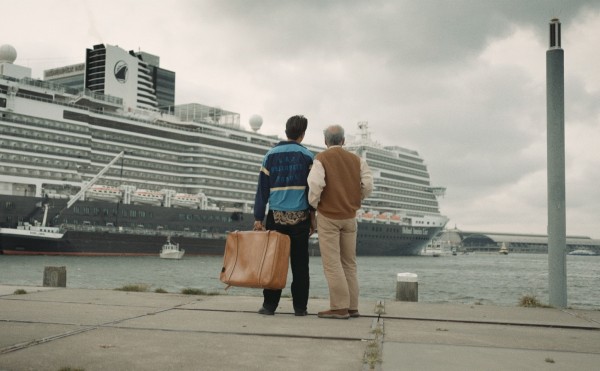
15 augustus 2025
Het koloniale verleden is onderdeel van iedereen die in Nederland woont
Openhartig gesprek met Benjamin Caton over de verhalen achter 15, 16 en 17 augustus
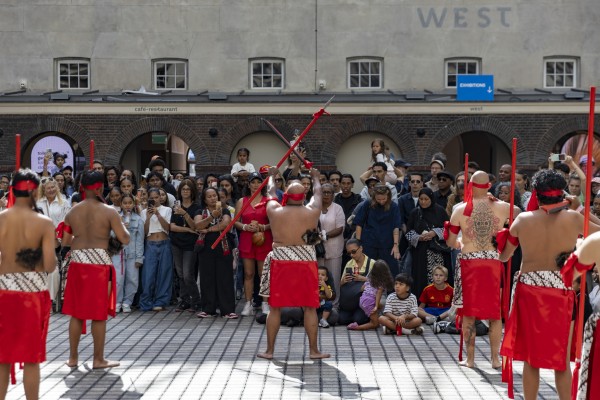
15 augustus 2025
Roots On Deck: De overname van het VOC-schip
De overname van het VOC-schip










